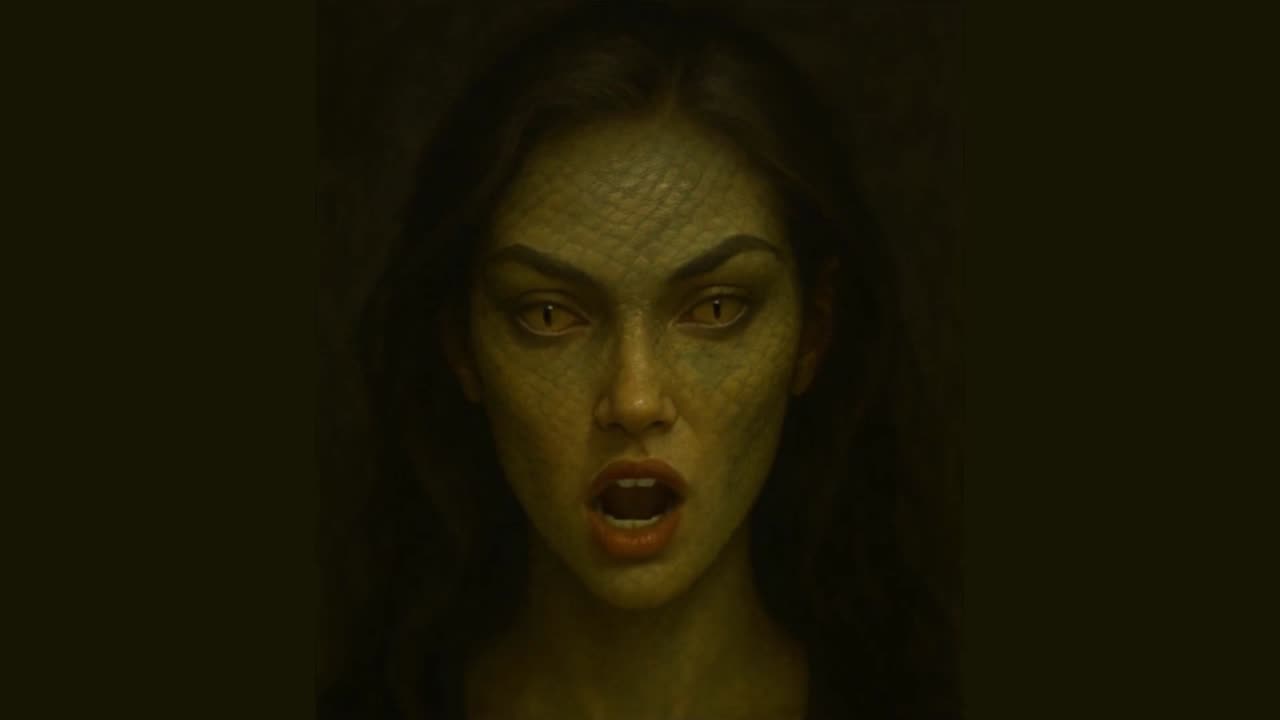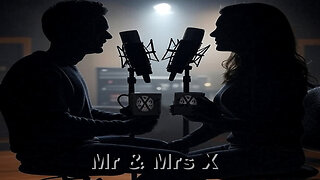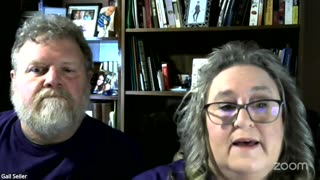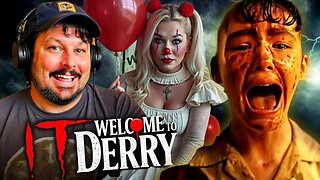Premium Only Content

Dominium Serpens - The opera that should not exist!
🜏 Gnosis and the Heresies That "Should Not Exist"
Songs:
1 - Whispers of the Gnosis – A Poetic Prologue
2 - The Silence of Aeons
3 - Aeon Without Name
4 - Echoes of the Unspoken
5 - Daughter of the Threshold
6 - Eyes of the Serpent
7 - The Forgotten Name
9 - Mirror of the One
10 - Epilogue: Where Silence Breathes
The title “The Opera That Should Not Exist” lies in the historical truth that, during the formation of early Christianity — roughly between the 2nd and 4th centuries CE — Gnostic thought was branded as heresy and ruthlessly suppressed.
The Gnostics believed that the material world was a prison, crafted by a false god — the Demiurge — and that within each human being resided a divine spark, a fragment of the true, ineffable source known as the Unknown God (Bythos, “the Abyss”).
Salvation, therefore, did not come through faith or obedience to the Church, but through gnosis — a direct, inner experience of divine knowledge.
This worldview was dangerous to the rising orthodoxy because it:
denied the authority of the Church and its sacraments,
reinterpreted biblical figures such as the Serpent (and even Lucifer) as bringers of light and wisdom,
and elevated the feminine principle (especially through Sophia, the embodiment of Wisdom) as a central force in creation and redemption — something deeply threatening to the patriarchal order of the time.
🕯️ The Gnostic Currents That Were Erased
The Ophites (or Naassenes) — the name comes from naas, “serpent” in Hebrew.
They revered the Serpent of Eden as humanity’s true liberator, the one who offered the knowledge that the false god tried to forbid.
Persecuted and condemned in the 2nd century, their texts were destroyed and their voices silenced.
The Valentinians — followers of Valentinus of Alexandria, one of the most brilliant Gnostic thinkers of the 2nd century.
He envisioned a mystical cosmology of Aeons (divine emanations) and the tragic fall of Sophia, whose error gave birth to the material world.
Though philosophical and poetic, they too were declared heretics and driven into extinction by the Roman Church.
Other movements, such as the Sethians, Basilidians, and Cainites, were similarly annihilated — or absorbed and erased from history until the discovery of the Nag Hammadi manuscripts in 1945 in Egypt, which revealed lost texts like The Gospel of Thomas, The Gospel of Mary Magdalene, and The Hypostasis of the Archons.
🜏 Connection with “Dominium Serpens”
The title “The Opera That Should Not Exist” symbolically honors this historical erasure — the attempt to silence forbidden wisdom and those who dared to reinterpret the divine outside the boundaries of orthodoxy.
The opera becomes the resurrection of forbidden voices:
of the Serpent who taught,
of Sophia who fell and rose again,
of Nahemah, who embraced desire without shame,
and of all seekers of inner truth branded as heretics.
To perform Dominium Serpens is, therefore, a spiritual act of defiance — an artistic invocation of what history tried to erase.
-
 1:31:56
1:31:56
Michael Franzese
17 hours agoWill NBA do anything about their Gambling Problems?
105K22 -
 57:26
57:26
X22 Report
7 hours agoMr & Mrs X - The Food Industry Is Trying To Pull A Fast One On RFK Jr (MAHA), This Will Fail - EP 14
78K48 -
 2:01:08
2:01:08
LFA TV
1 day agoTHE RUMBLE RUNDOWN LIVE @9AM EST
136K11 -
 1:28:14
1:28:14
On Call with Dr. Mary Talley Bowden
5 hours agoI came for my wife.
15.3K20 -
 1:06:36
1:06:36
Wendy Bell Radio
10 hours agoPet Talk With The Pet Doc
51.9K28 -
 30:58
30:58
SouthernbelleReacts
2 days ago $7.50 earnedWe Didn’t Expect That Ending… ‘Welcome to Derry’ S1 E1 Reaction
31.8K9 -
 13:51
13:51
True Crime | Unsolved Cases | Mysterious Stories
5 days ago $17.84 earned7 Real Life Heroes Caught on Camera (Remastered Audio)
48.9K11 -
 LIVE
LIVE
Total Horse Channel
16 hours ago2025 IRCHA Derby & Horse Show - November 1st
116 watching -
 4:19
4:19
PistonPop-TV
6 days ago $7.81 earnedThe 4E-FTE: Toyota’s Smallest Turbo Monster
41.5K -
 43:07
43:07
WanderingWithWine
6 days ago $4.78 earned5 Dreamy Italian Houses You Can Own Now! Homes for Sale in Italy
30.6K9